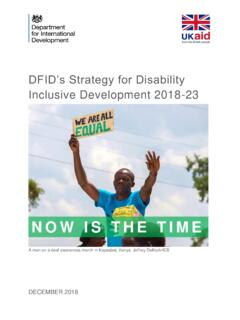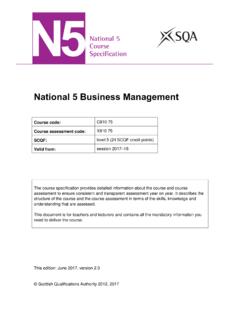Transcription of INCLUSION AND EQUITY POLICY - Civic Kinder
1 Civic Kindergarten INCLUSION and EQUITY POLICY Page 1 of 10 INCLUSION AND EQUITY POLICY PURPOSE This POLICY will provide guidelines to: ensure all adults and children at Civic Kindergarten (see definitions) are treated equitably and with respect, regardless of their background, ethnicity, culture, language, beliefs, gender, age, socioeconomic status, level of ability, additional needs, family structure or lifestyle promote inclusive practices and ensure the successful participation of all children at Civic Kindergarten. POLICY STATEMENT 1.
2 VALUES Civic Kindergarten is committed to: acknowledging and respecting the rights of all children to be provided with and participate in a quality early childhood education and care program creating an environment that supports, reflects and promotes equitable and inclusive behaviours and practices creating a sense of belonging for all children, families and staff, where diverse identities, backgrounds, experiences, skills and interests are respected, valued and given opportunities to be expressed/developed ensuring that programs are reflective of.
3 And responsive to, the values and cultural beliefs of families using the service, and of those within the local community and broader society working to ensure children are not discriminated against on the basis of background, ethnicity, culture, language, beliefs, gender, age, socioeconomic status, level of ability or additional needs, family structure or lifestyle ensuring that no employee, prospective employee, parent/guardian, child, volunteer or student at the service is discriminated against on the basis of having or being suspected of having an infectious disease or blood-borne virus (BBV refer to Definitions) upholding the values and principles of Early Childhood Australia (ECA) and Early Childhood Intervention Australia s (ECIA) Position Statement on the INCLUSION of Children with a Disability in Early Childhood Education and Care (refer to Sources)
4 Providing all children with the opportunity to access programs at the service, and recognising that all families are unique and that children learn in different ways and at different rates consistently updating and supporting the knowledge, skills, practices and attitudes of staff to encourage and ensure INCLUSION and EQUITY complying with current legislation including the Charter of Human Rights and Responsibilities Act 2006, Equal Opportunity Act 2010, Disability Act 2006 and Racial and Religious Tolerance Act 2001. 2. SCOPE This POLICY applies to the Approved Provider, Nominated Supervisor, Certified Supervisor, educators, staff, students on placement, volunteers, parents/guardians, children and others attending the programs and activities of Civic Kindergarten.
5 Civic Kindergarten INCLUSION and EQUITY POLICY Page 2 of 10 3. BACKGROUND AND LEGISLATION Background It is intended that all Victorian children have access to a year of kindergarten before school. The Victorian Government requires funded organisations to ensure that their policies and procedures promote equality of opportunity for all children. Criteria for access and INCLUSION are outlined in the Victorian kindergarten POLICY , procedures and funding criteria (refer to Sources) and include the requirement that funded organisations comply with existing legislation.
6 State and Commonwealth laws prohibit discrimination based on personal characteristics, including race, age, gender, religious belief, disability and parental status. Underpinning the development of this POLICY are the requirements of the Equal Opportunity Act 2010, Charter of Human Rights and Responsibilities Act 2006, Child Wellbeing and Safety Act 2005, Disability Discrimination Act 1992, Disability Act 2006, Education and Care Services national Law Act 2010 and Education and Care Services national Regulations 2011. Children enrolling in kindergarten come from a variety of backgrounds and home situations.
7 These circumstances need to be considered when engaging with parents and supporting children in the kindergarten program. Where families are accessing additional support from other services, it is important to ensure that a coordinated, confidential and sensitive approach is undertaken to providing support and strengthening the capacity of the family unit. On commencing kindergarten, services should provide families with information about: the role of inclusive practice in achieving outcomes for all children and the key values underpinning inclusive practice the support options available for children during the (Victorian kindergarten POLICY , procedures and funding criteria refer to Sources).
8 INCLUSION involves taking into account all children s social, cultural and linguistic diversity (including learning styles, abilities, disabilities, gender, family circumstances and geographic location) in curriculum decision-making processes (Guide to the national Quality Standard, Element refer to Sources). Practice Guide Four: EQUITY and Diversity is one of a series of Victorian Early Years Learning and Development Framework Practice Guides (refer to Sources), and includes examples of best practice from a range of early childhood professionals across diverse settings.
9 In addition to developing and implementing an INCLUSION and EQUITY POLICY , values of INCLUSION and EQUITY should also be incorporated into a service s philosophy statement. Developing professional knowledge and skills, and using family-centred practice (refer to Definitions) to work in partnership with children, families, communities, and other services and agencies, will assist services to identify, include and support children with additional needs and their families. Under the Commonwealth s Disability Discrimination Act 1992, it is illegal to discriminate against a person on the basis of the presence of organisms in their body that are capable of causing disease or illness.
10 Early childhood services are also obligated by law, service agreements and licensing requirements to comply with the Education and Care Services national Law and national Regulations, and privacy and health records legislation in relation to collecting and storing personal and health information about individuals (refer to Privacy and Confidentiality POLICY ). Legislation and standards Relevant legislation and standards include but are not limited to: Age Discrimination Act 2004 Charter of Human Rights and Responsibilities Act 2006 (Vic), as amended 2011 Children, Youth and Families Act 2005 (Vic), as amended 2011 Child Wellbeing and Safety Act 2005 (Vic), as amended 2012 Civic Kindergarten INCLUSION and EQUITY POLICY Page 3 of 10 Dardee Boorai.

